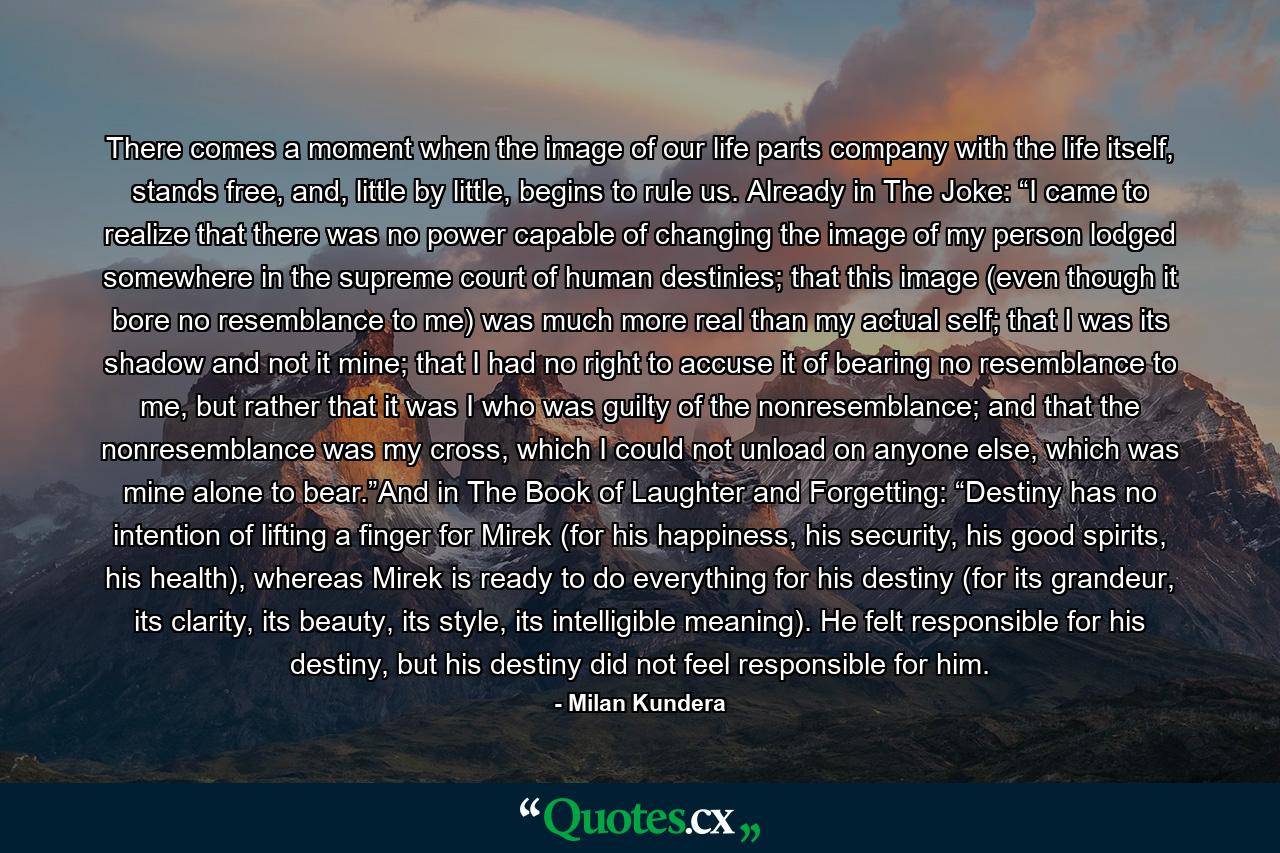There comes a moment when the image of our life parts company with the life itself, stands free, and, little by little, begins to rule us. Already in The Joke: “I came to realize that there was no power capable of changing the image of my person lodged somewhere in the supreme court of human destinies; that this image (even though it bore no resemblance to me) was much more real than my actual self; that I was its shadow and not it mine; that I had no right to accuse it of bearing no resemblance to me, but rather that it was I who was guilty of the nonresemblance; and that the nonresemblance was my cross, which I could not unload on anyone else, which was mine alone to bear.”And in The Book of Laughter and Forgetting: “Destiny has no intention of lifting a finger for Mirek (for his happiness, his security, his good spirits, his health), whereas Mirek is ready to do everything for his destiny (for its grandeur, its clarity, its beauty, its style, its intelligible meaning). He felt responsible for his destiny, but his destiny did not feel responsible for him.
